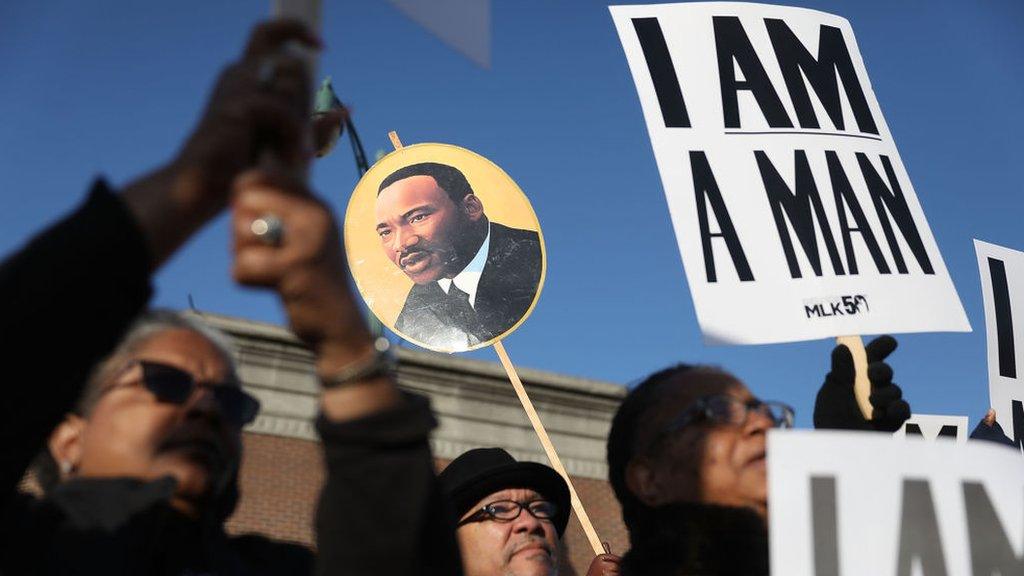Memphis 'punished' for removing Confederate statues
- Published
Memphis removes Confederate statues
Republican lawmakers in Tennessee are withholding funds from the city of Memphis after it used a legal loophole to remove two Confederate monuments.
The Republican-controlled House pulled money for the city's bicentennial plans next year in a last-minute amendment attached to a government spending bill.
The statues depicted the leader of the US rebellion and a slave-trader who became the first Ku Klux Klan leader.
Confederate statues have become a major flashpoint in a national race debate.
Republican Andy Holt said on the House floor: "Today is a demonstration that bad actions have bad consequences, and my only regret about this is it's not in the tune of millions of dollars."
He likened the removal of Confederate statues to the actions of the Islamic State (IS), which appeared to refer to the terror group's destruction of ancient sites like Palmyra in Syria.
The grant that was withheld, which would have provided $250,000 (£175,000) for the city's bicentennial celebration, was dropped from a $37.5m government spending bill on Tuesday by House legislators.
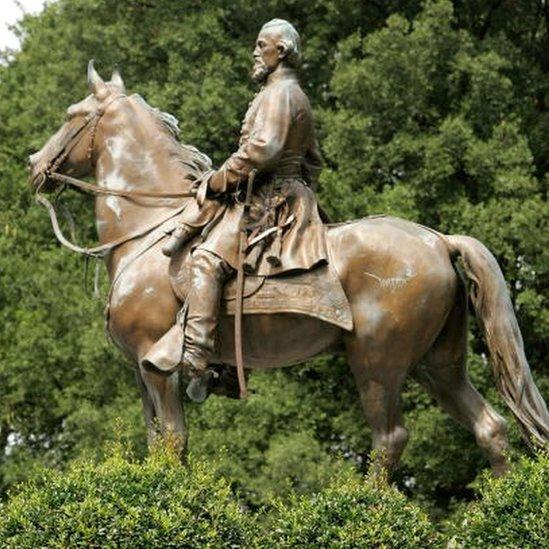
Bedford was a slave trader and leader of the Ku Klux Klan white supremacist group
Democrats who represent the majority-black city called the move "racist".
"You can boo all you want but let's call it for what it is," Memphis lawmaker Antonio Parkinson told Republicans at the raucous hearing where the bill passed by a vote of 87-5.
"This is one of the most vile, racist acts I've seen happen in the legislature," he later told the Washington Post.
Racism in the US: Is there a single step that can bring equality?
Democrats noted the last-minute amendment to the bill came a week after the city held official commemorations to black civil rights leader Martin Luther King Jr, who was assassinated there 50 years ago.
Memphis last year sold two parks containing the memorials to a non-profit organisation for below-market price, which allowed the city to skirt a historic preservation law requiring state approval to remove monuments on public lands.
The Tennessee Heritage Protection Act requires a state historical commission to issue a waiver for any alterations to monuments in public parks.
But the city sold the parks to a private entity without approval and had them immediately removed.
Why do Confederate statues divide the United States?
At least two online fundraisers have been set up to replace the lost bicentennial budget.
One drive, which has been sponsored by Memphis mayor Jim Strickland, topped nearly $50,000 on Thursday.
Why were these statues controversial?
One of the Memphis statues was dedicated to Jefferson Davis, the president of pro-slavery Confederacy in the US Civil War of 1861-65.
The second statue honoured Nathan Bedford Forrest, a slave trader, Confederate general and a leader in the Ku Klux Klan white supremacist group.
The city's decision to remove the monuments came amid a national wave of US municipalities moving to tear down Confederate iconography from public spaces.
Critics say the controversial statues honour traitors and racists while supporters argue they preserve American history.
- Published22 December 2017
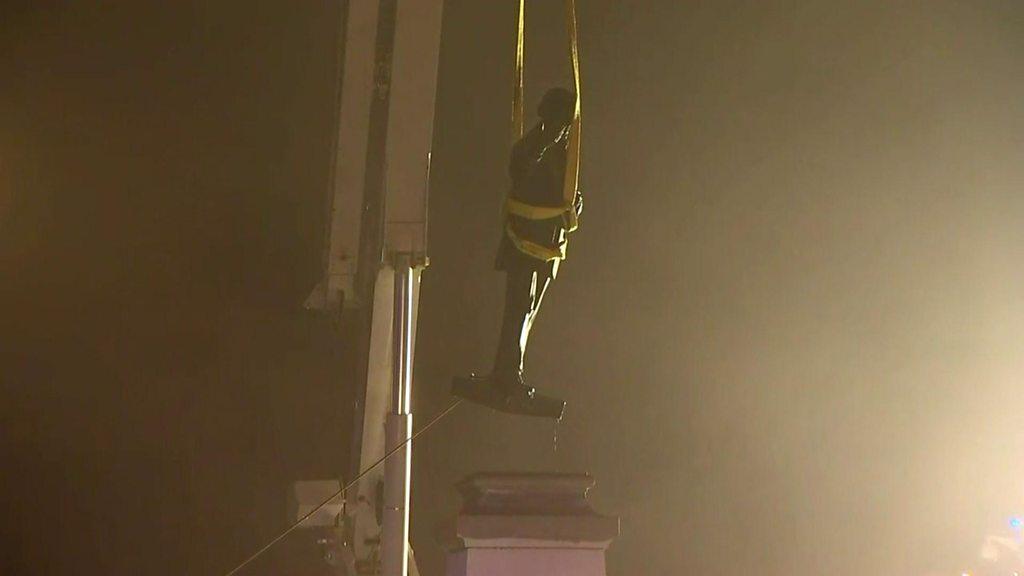
- Published15 August 2017
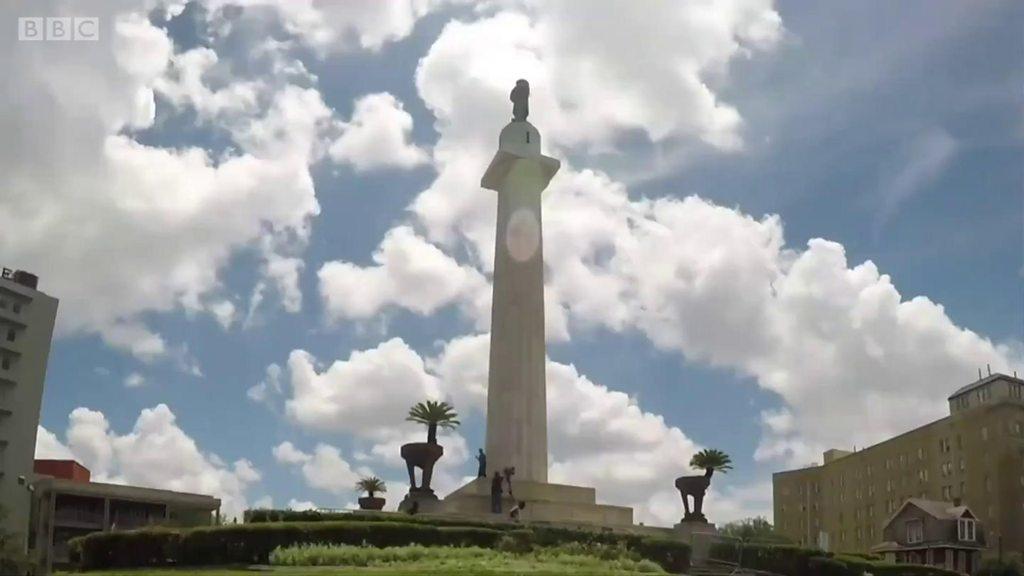
- Published13 April 2018
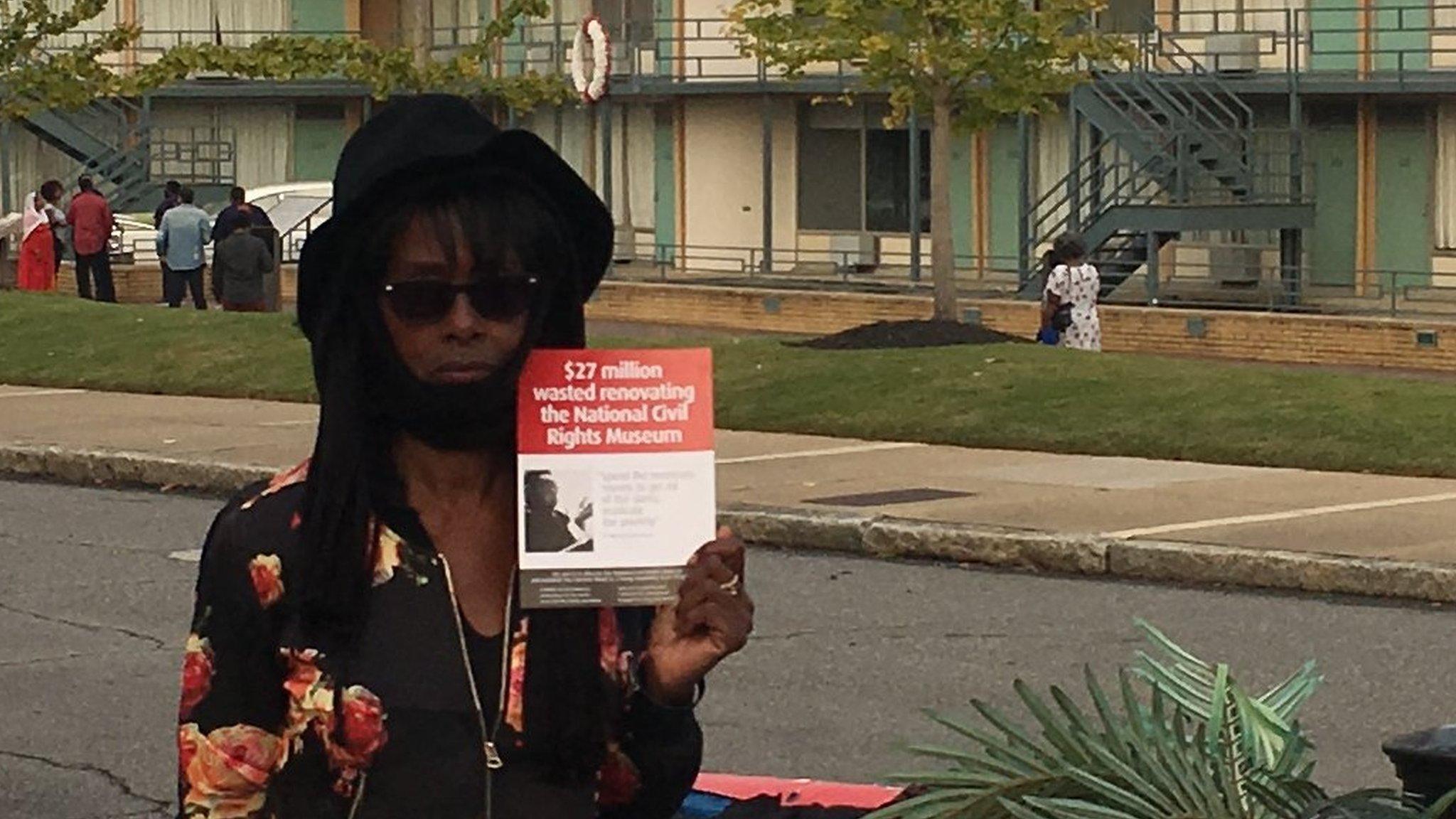
- Published5 April 2018
